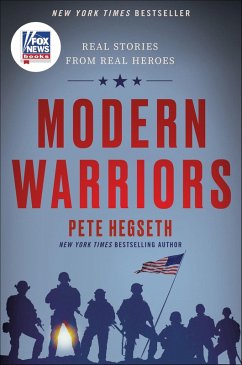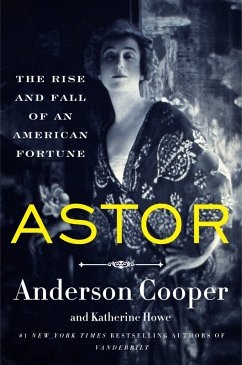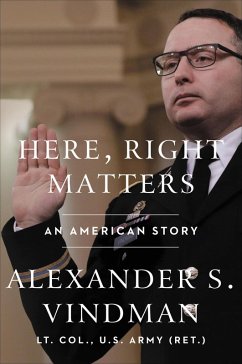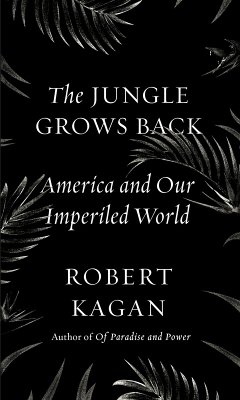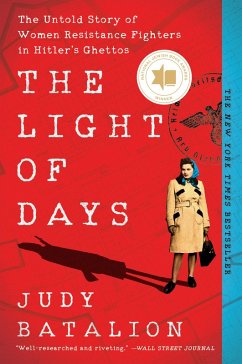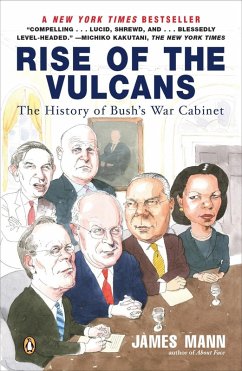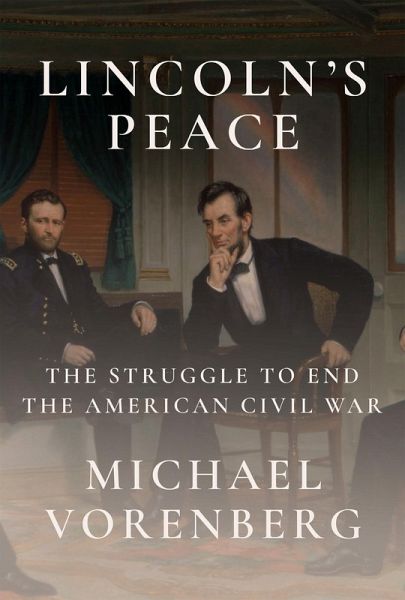
Lincoln's Peace (eBook, ePUB)
The Struggle to End the American Civil War

PAYBACK Punkte
5 °P sammeln!
A NEW YORKER BEST BOOK OF 2025 • One historian's journey to find the end of the Civil War-and, along the way, to expand our understanding of the nature of war itself and how societies struggle to draw the line between war and peace LOS ANGELES TIMES "TOP TEN BOOKS TO READ IN 2025" "Eye-opening, disturbing, moving and at times jaw-dropping . . . Once in a great while a book arrives that allows us to rediscover the strange inexhaustibility of the Civil War. Lincoln's Peace is such a book." -Tony Kushner "Lincoln's Peace does something remarkable: It makes us think about familiar questions i...
A NEW YORKER BEST BOOK OF 2025 • One historian's journey to find the end of the Civil War-and, along the way, to expand our understanding of the nature of war itself and how societies struggle to draw the line between war and peace LOS ANGELES TIMES "TOP TEN BOOKS TO READ IN 2025" "Eye-opening, disturbing, moving and at times jaw-dropping . . . Once in a great while a book arrives that allows us to rediscover the strange inexhaustibility of the Civil War. Lincoln's Peace is such a book." -Tony Kushner "Lincoln's Peace does something remarkable: It makes us think about familiar questions in an entirely new and engaging way. A marvelous achievement." -Jon Meacham "Helps us understand what the war was all about and whether in some ways it is still being fought." -Eric Foner We set out on the James River, March 25, 1865, aboard the paddle steamboat River Queen. President Lincoln is on his way to General Grant's headquarters at City Point, Virginia, and he's decided he won't return to Washington until he's witnessed, or perhaps even orchestrated, the end of the Civil War. Now, it turns out, more than a century and a half later, historians are still searching for that end. Was it April 9, at Appomattox, as conventional wisdom holds, where Lee surrendered to Grant in Wilmer McLean's parlor? Or was it ten weeks afterward, in Galveston, where a federal commander proclaimed Juneteenth the end of slavery? Or perhaps in August of 1866, when President Andrew Johnson simply declared "the insurrection is at an end"? That the answer was elusive was baffling even to a historian of the stature of Michael Vorenberg, whose work served as a key source of Steven Spielberg's Lincoln. Vorenberg was inspired to write this groundbreaking book, finding its title in the peace Lincoln hoped for but could not make before his assassination. A peace that required not one but many endings, as Vorenberg reveals in these pages, the most important of which came well more than a year after Lincoln's untimely death. To say how a war ends is to suggest how it should be remembered, and Vorenberg's search is not just for the Civil War's endpoint but for its true nature and legacy, so essential to the American identity. It's also a quest, in our age of "forever wars," to understand whether the United States's interminable conflicts of the current era have a precedent in the Civil War-and whether, in a sense, wars ever end at all, or merely wax and wane.
Dieser Download kann aus rechtlichen Gründen nur mit Rechnungsadresse in A, B, BG, CY, CZ, D, DK, EW, E, FIN, F, GR, HR, H, IRL, I, LT, L, LR, M, NL, PL, P, R, S, SLO, SK ausgeliefert werden.




